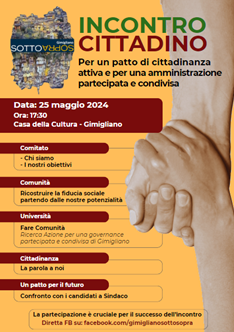by Domenico Bilotti, exclusive for The diagonales
When continental public law was intended to indicate a truly efficient democratic procedure, it usually referred to the adoption of the budget in Great Britain (the so-called Westminster model) or the American Presidencies. Majority system, second degree elections: many delegates for each state, who then elect the President of all the United States.
One of the faces of the crisis of these years is also the failure of hyper-functionalist rhetoric: Great Britain has passed through two referendums on the opposite reading. First Scotland decided to stay in the United Kingdom, then the whole of the United Kingdom voted to leave the European Union. From a legal-cultural point of view, it may be unavoidable: Great Britain had an exclusion clause from the Nice Charter because of the local primacy of common law principles; moreover, it did not adopt the euro.

From the application point of view, it will be dramatic: the implementing rules are still lacking but we already see the consequences in import-export and in the rights and protections of foreign workers.
With the 2020 elections, the myth of the American electoral efficiency has also fallen: complicated by the never before so extensive use of postal voting, legitimised by fears and restrictions due to the high number of Covid-19 contagions, it has totally foundered due to the long and perilous counting of preferences expressed state by state.
And here falls another myth: in the tendential and deep-rooted American bipolarism, fought between liberal democrats and conservative republicans, there have always been third parties. These are small political movements, expressive above all of the opinion vote (the radical ecologist one or the liberalist and anti-state one), which sometimes have an enormous weight in the single state in which they vote, because they attract the 2/3% of votes that decide the victory between the Republican Party and the Democratic Party. This time it almost didn’t happen: the moment, much more than the history of US legal institutions, has made the preference for these parties even less relevant than in the past. A plural system, in fact, suffers even when polarizations become too extreme.
And to say that this time the ingredients for a gigantic mass misunderstanding were all there. Trump was a screamer, a man pressed by strong powers, which is a good argument for the first time in campaigning, but it becomes sickly after four years of power, exercised more and more with a certain and smug isolationism. Biden wanted to play – and has been able to play – the role of the good compassed, gatherer of young energies that the Democratic Party has highlighted especially in some local districts. Another oddity, however: Biden is an almost 80-year-old man who has long been in the ranks of the Party and the state administration, and who is far removed from the more innovative currents of the Democrats. He has been able to keep them together, but he has not represented them all, especially not in the most lively movements and ideas.
In spite of the more than three points of advantage in general percentage terms (in a country where more than one hundred and fifty million voters voted this time), Biden also obtained 279 delegates: a mere ten more than the required majority. And here lies perhaps the wise technical-legal masterpiece of Trump’s staff: used to working with a candidate who is an expression of a relative minority, no matter how conspicuous, he must fit into every bug in the system. Never win well in a State, but also take as many States as possible for the break of hearts. Do not play where the gap is irrecoverable: they are wasted energies; there, the “big voters” win “those others”.

They have all voted, but perhaps the three major sectors of American public opinion have not voted univocally, or at least not in a clearly legible way. In the vote of the ethnic groups, the Afro-Americans once again stood out as Democrats, but with far less enthusiasm than when Obama won (a candidate who then, in many ways, disappointed that same electorate). Hispanics voted to the surprise of many, but not the most attentive observers, the Republican Party: attracted by its familist rhetoric, convinced that their position should be protected above all by irregular Hispanics, they see in the conservative right the guarantee of preserving the system that has rewarded them. And the Democrats must reflect well, otherwise, in that basin, they will be left with only the most radical Chicano vote – the one least followed by the party’s central bodies.

And surprisingly, the vote of religious lobbies has counted less than in the past: it has allowed the Republicans to maintain the “belt of God” (the southern states, Texas in the lead, where the forms of congregationalism and conservative Catholicism are stronger); it has allowed, more and more, in the field of progressive Catholicism and reformist Protestantism, the Democrats to maintain some well-established liberal outposts, like in New York. However, it was not as divisive as in Bush’s two terms or Trump’s first term. The impression is that in America now harbours silly and lacerating extremism, transversal to cultural and religious affiliation. On Covid-19, they can be hardened atheist liberalist deniers and militants of the extreme fundamentalist fringes; on the racial issue, they become intolerant whites who have the same baptism as black citizens; on school education, they can fight to remove Darwin from the moderate traditionalist programs and confessionist sects of various kinds.
The division is a cancer in America that no longer needs the different location – western and eastern, southern and northern states – to understand who votes right or left, nor the different affiliations of faith to produce the rules of conduct of a dominant social morality. America is intrinsically much more conflictual today than the sum of all its parties. Unfortunately, there has been a lack of electoral representation of the street revolts, of those excluded from both public (residual) and private health coverage, of universities and of boneless industrial induced parties. The other America, in short, has been missing. That part of America that in the act of declaring itself antagonistic to the system is nevertheless its truest part and its most intimate glue.

Domenico Bilotti collaborate with The diagonales. He is adjoint professor of “History of Religions” at the Magna Graecia University of Catanzaro (South Italy) and holder of courses at the Master’s in “Cultural Heritage and Ecclesiastical Heritage” of the same university. The rest of the time he observes, reads, travels, attends soccer stadiums.







Devi effettuare l'accesso per postare un commento.